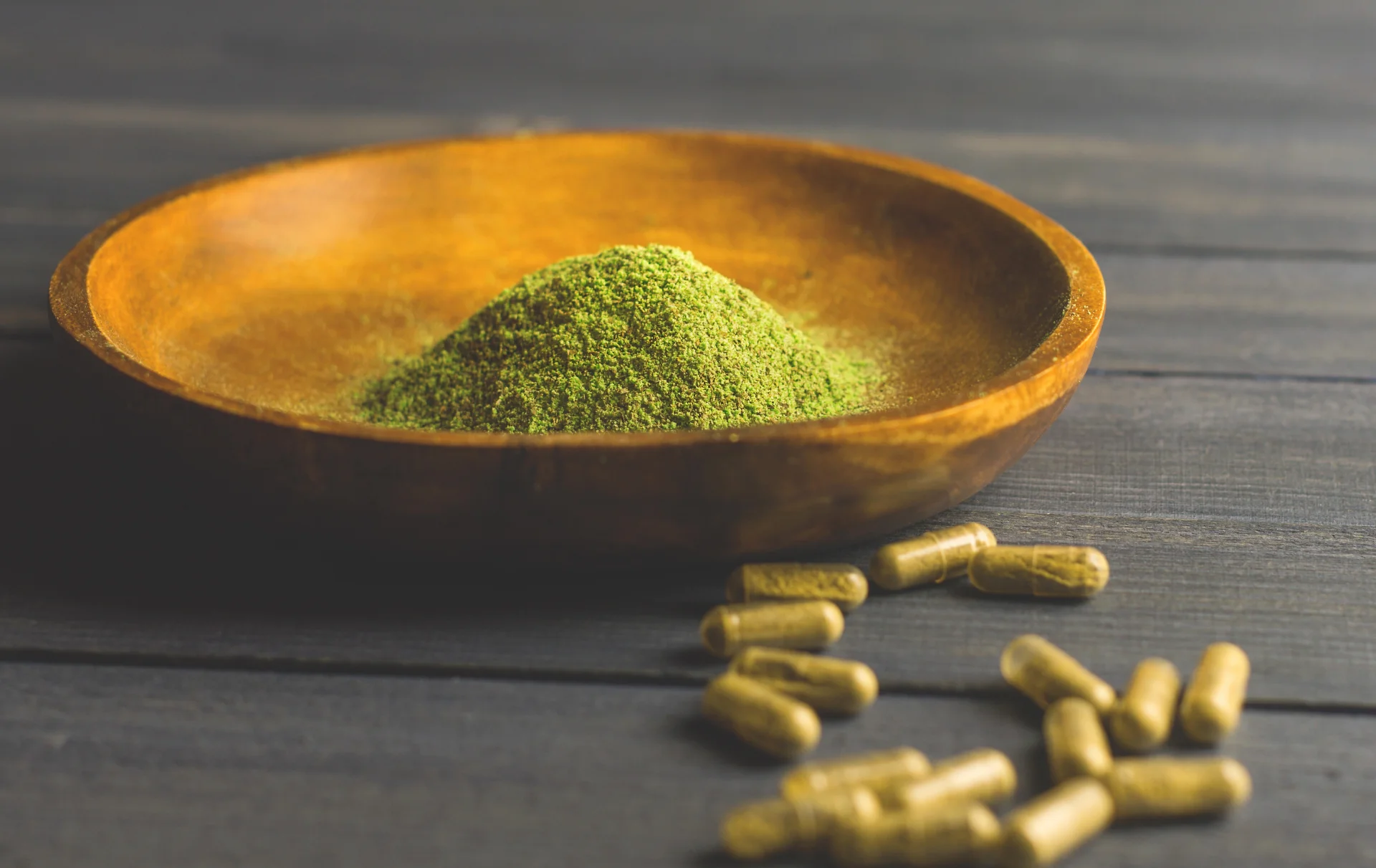Kratom Addiction Treatment in Long Island
Our Long Island guide to kratom explains what it is, local laws, risks of dependence and withdrawal, safe detox, and confidential treatment referrals.
Covered by most insurance plans
Available to help you 24/7
Table of Contents
Kratom Addiction Treatment on Long Island
Kratom is a tropical plant whose alkaloids can produce opioid like and stimulant like effects. Although legal for adults 21 and over in New York, kratom has real addiction potential and can lead to dependence and uncomfortable withdrawal. Long Island Addiction Resources is a confidential referral service that helps you compare nearby licensed programs that match your needs and your insurance. We are not a rehab or medical provider.

A Brief Overview of Kratom and How It Works
Kratom, or Mitragyna speciosa, contains alkaloids such as mitragynine and 7 hydroxymitragynine. At lower doses it can feel stimulating. At higher doses it often feels sedating and opioid like. People chew fresh leaves in traditional settings. In the U.S. it is typically taken as powder, tea, capsules, or extracts.
Is Kratom Legal on Long Island
Kratom is not a controlled substance at the federal level and remains legal in New York for adults 21 and over. The FDA has not approved kratom for any medical use. Products vary widely in potency and purity, which increases risk.
Is Kratom Addiction Dangerous
- Dependence Continued use can lead to physical dependence with withdrawal symptoms when stopping.
- Health risks Reported problems include insomnia, anxiety, tachycardia, hypertension, seizures, liver injury, and in severe cases respiratory issues.
- Product uncertainty Some products are contaminated or highly concentrated. Doses can be unpredictable.
How Kratom Addiction Develops
Risk rises with easy access, peer influence, co occurring mental health conditions, trauma history, and family history of addiction. Escalating dose to chase effects or self medicating stress and pain can spiral into compulsive use despite harm.
Signs and Symptoms
- Physical Withdrawal when stopping, sleep disturbance, excessive fatigue after binges, nausea, vomiting or diarrhea, sweating and runny nose, tremor, breathing irregularities, weight changes.
- Behavioral Intense craving, spending despite financial strain, mood swings, anxiety or depression, social withdrawal, concentration problems, emotional outbursts, neglect of responsibilities.
Withdrawal and Detox on Long Island
Stopping suddenly can cause anxiety, irritability, insomnia, muscle aches, headache, nausea, sweating, and cravings. Medically managed detox focuses on safety and comfort. For moderate to severe cases, supervised settings are recommended. Care plans may include non opioid medications for symptom relief and close monitoring of sleep, vitals, and mood.
Treatment Options Near You
- Medical detox Stabilization with symptom management and a taper plan when appropriate.
- Inpatient or residential Twenty four hour structure for higher risk situations or unstable environments.
- Partial Hospitalization Program Daytime treatment with evenings at home.
- Intensive Outpatient Program Several therapy sessions per week with medical oversight as needed.
- Standard outpatient and aftercare Ongoing counseling, medication management when indicated, peer support, and relapse prevention planning.
Therapies That Help
- Cognitive Behavioral Therapy Identifies triggers, reworks thought patterns, and builds coping and relapse prevention skills.
- Dialectical Behavior Therapy skills Emotion regulation, distress tolerance, and interpersonal effectiveness.
- Motivational interviewing Strengthens readiness and commitment to change.
- Group therapy and peer support Reduces isolation and provides accountability and practical strategies.
- Sober living Structured, substance free housing that supports re entry to daily life.
Complementary Supports
Programs may offer holistic options such as yoga, mindfulness, gentle exercise, acupuncture, and nutrition support to reduce stress and improve sleep while recovery stabilizes.

Important Notes for Kratom Treatment
- Customized plan Treatment should be individualized to your history and goals.
- Family involvement Family therapy can improve communication and support.
- Medical supervision Avoid self detox. Professional oversight helps manage risks and adjust care.
- Address underlying conditions Treat anxiety, depression, trauma, or pain alongside substance use care.
Find Help on Long Island
Long Island Addiction Resources listens to your needs, verifies insurance, and connects you with nearby licensed programs for detox, inpatient, outpatient, dual diagnosis care, and recovery support across Nassau and Suffolk. Confidential help is available.
Start today
If you or a loved one are ready to end your alcohol and drug use, there are many recovery options available near you in Long Island
Rehab Programs
Are you ready to take back control over your life?
Making the decision to seek help is one of the hardest and bravest steps you can take. We know that the recovery process is not always easy—there may be challenges along the way—but every step forward brings you closer to a life free from the weight of addiction.
Let today be
your Day 1
We'll get on a call, assess your health history, and verify your insurance. Today is Day 1. We can't wait to celebrate Day 1000 with you!
Fill out this simple form and we’ll call you right back.
Frequently Asked Questions
We'll get on a call, assess your health history, and verify your insurance. Today is Day 1. We can't wait to celebrate Day 1000 with you!
What are the risks of using kratom?
Risks include dependence, withdrawal, and health complications such as insomnia, anxiety, heart problems, and liver damage.
Can kratom cause addiction?
Yes. Regular use can lead to dependence, tolerance, and withdrawal symptoms similar to opioids, making professional treatment important.
Can therapy help in kratom recovery?
Yes. Behavioral therapies such as CBT, DBT, and trauma-focused care address underlying mental health concerns and help prevent relapse.
How long does kratom treatment take?
The length of treatment depends on individual needs. Some may require short-term detox, while others benefit from longer inpatient or outpatient programs.
Is treatment confidential?
Yes. All referrals and treatment services are confidential, ensuring individuals can seek help without fear of judgment or exposure.














